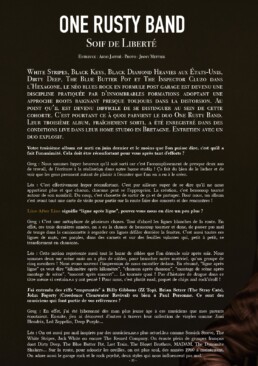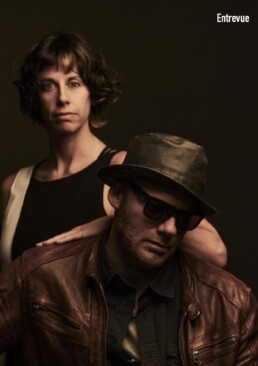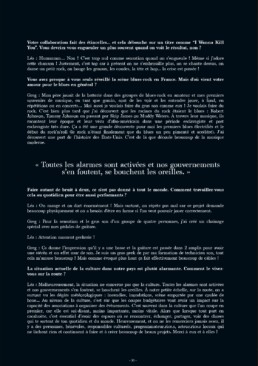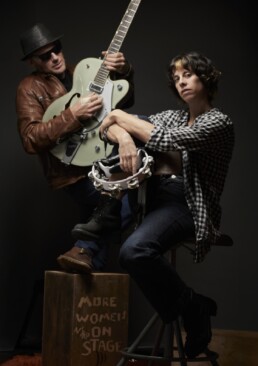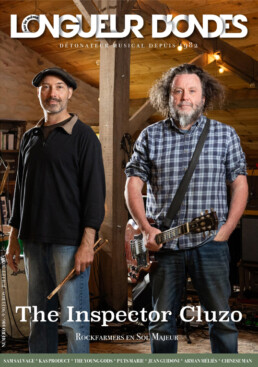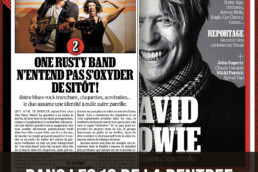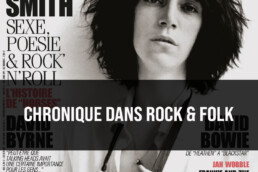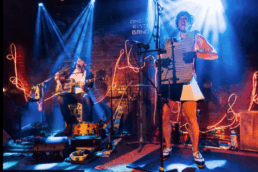ONE RUSTY BAND
THIRST FOR FREEDOM
INTERVIEW: ARNO JAFFRÉ - PHOTO: JIMMY METTIER
White Stripes, Black Keys, Black Diamond Heavy in the US, Dirty Deep, The Blue Butter Pot and The Inspector Cluzo in France neo blues-rock in the post-garage format has become a discipline practiced by countless bands adopting a roots approach that almost always bathes in distortion. To the point where it’s become difficult to stand out among such a cohort. Yet that’s exactly what ONE RUSTY BAND achieves. Their third album, freshly released, was recorded live-in-the-room in their home studio in Brittany. Interview with an explosive duo.
Your third album came out last June and the least we can say is that it has been unanimously received. That must be comforting for you after so much effort?
Greg: We’re super happy it’s out because it’s the culmination of almost two years of work, from writing to production, in our home studio! It feels good to release it and see that people enjoy listening to it as much as we enjoyed creating it.
Léa: It’s indeed very comforting. It’s also great to say that it no longer belongs to us and that anyone can make it their own. Creation is a lot about turning inward. So it’s nice to step out of that and share. For us, an album is above all a business card for hitting the road, doing concerts and making encounters!
Line After Line means “line after line”, can you tell us a bit more?
Greg: It’s a metaphor for several things. First the white lines on the road. Indeed, over these past three years, we’ve been lucky to tour a lot and hence spend quite a lot of time in the van watching those lines roll by the window. It’s also all those lines of words, those lyrics, in notebooks and on loose sheets that, little by little, become songs.
Léa: This notion also represents all the cable mess we roll out show after show. There are two of us on stage but we’ve got more cables, to plug in our gear, than a five-piece band! We often feel tangled in them. In short, “line after line” means “mile after mile”, “song after song”, “stage set-up after stage set-up”, “gig after gig”… The tour, basically! No drug story in this title even though some have thought so! For us it’s more road, a bag of chips and rock’n’roll!
I heard riffs “borrowed” from Billy Gibbons (ZZ Top), Brian Setzer (The Stray Cats), John Fogerty (Creedence Clearwater Revival) or Paul Personne. Are these musicians part of your references?
Your collaboration sparks… and it yields a track like “I Wanna Kill You”. You should argue more often when we see the result, no?
You have almost single-handedly awakened the blues-rock scene in France. But where does your love for the blues in general stem from?
"All alarms are activated and our governments don’t care, they cover their ears."
Making so much noise as a duo isn’t given to everyone. How do you work daily to be so performant?
The current situation of culture in our country is rather alarming. How do you live it on the road?

